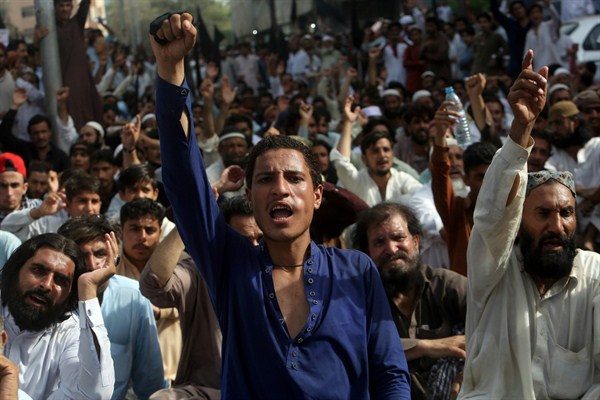Last month, Pakistan made one of the most important political moves in its 70-year history. Parliament passed legislation, officially the 25th Constitutional Amendment Bill, which paves the way for the merger of Pakistan’s semi-autonomous Federally Administered Tribal Areas with the neighboring province of Khyber-Pakhtunkhwa. On May 31, Pakistani President Mamnoon Hussain signed the bill into law.
Pakistan’s tribal belt will now come under the writ of Khyber-Pakhtunkhwa’s provincial government. North Waziristan, South Waziristan and the rest of Pakistan’s seven tribal agencies will become districts of Khyber-Pakhtunkhwa. No longer will they be loosely administered by national government representatives known as political agents, who were infamous for their corruption and mismanagement.
The tribal areas’ merger is a watershed development in Pakistan’s political history that is poised to bring positive change to the country’s economic, political and security landscape. However, like any far-reaching political reform, and particularly in a volatile nation like Pakistan, it is also fraught with risk.

